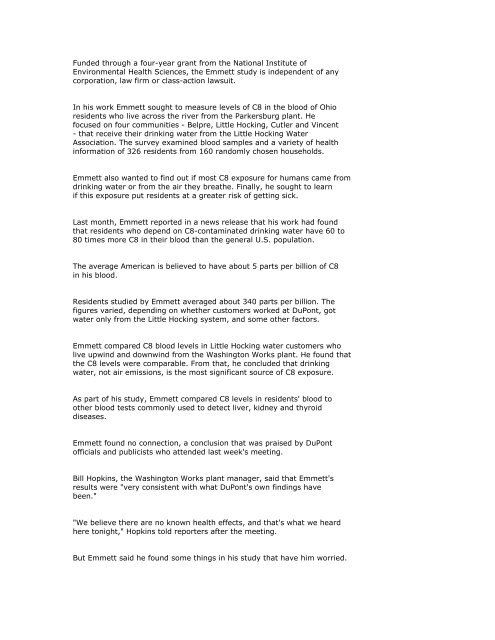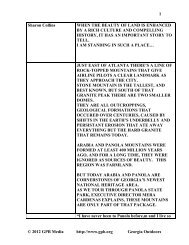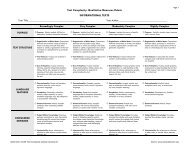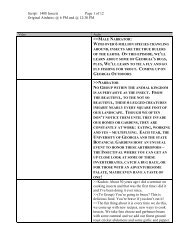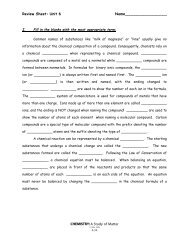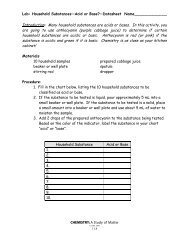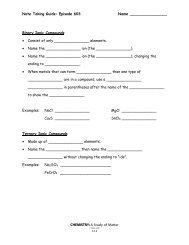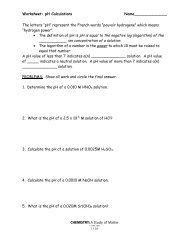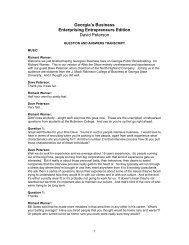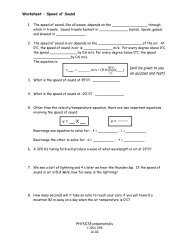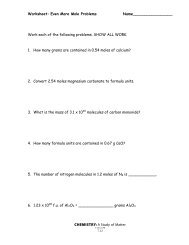PFOA stories
PFOA stories
PFOA stories
- No tags were found...
You also want an ePaper? Increase the reach of your titles
YUMPU automatically turns print PDFs into web optimized ePapers that Google loves.
Funded through a four-year grant from the National Institute ofEnvironmental Health Sciences, the Emmett study is independent of anycorporation, law firm or class-action lawsuit.In his work Emmett sought to measure levels of C8 in the blood of Ohioresidents who live across the river from the Parkersburg plant. Hefocused on four communities - Belpre, Little Hocking, Cutler and Vincent- that receive their drinking water from the Little Hocking WaterAssociation. The survey examined blood samples and a variety of healthinformation of 326 residents from 160 randomly chosen households.Emmett also wanted to find out if most C8 exposure for humans came fromdrinking water or from the air they breathe. Finally, he sought to learnif this exposure put residents at a greater risk of getting sick.Last month, Emmett reported in a news release that his work had foundthat residents who depend on C8-contaminated drinking water have 60 to80 times more C8 in their blood than the general U.S. population.The average American is believed to have about 5 parts per billion of C8in his blood.Residents studied by Emmett averaged about 340 parts per billion. Thefigures varied, depending on whether customers worked at DuPont, gotwater only from the Little Hocking system, and some other factors.Emmett compared C8 blood levels in Little Hocking water customers wholive upwind and downwind from the Washington Works plant. He found thatthe C8 levels were comparable. From that, he concluded that drinkingwater, not air emissions, is the most significant source of C8 exposure.As part of his study, Emmett compared C8 levels in residents' blood toother blood tests commonly used to detect liver, kidney and thyroiddiseases.Emmett found no connection, a conclusion that was praised by DuPontofficials and publicists who attended last week's meeting.Bill Hopkins, the Washington Works plant manager, said that Emmett'sresults were "very consistent with what DuPont's own findings havebeen.""We believe there are no known health effects, and that's what we heardhere tonight," Hopkins told reporters after the meeting.But Emmett said he found some things in his study that have him worried.


